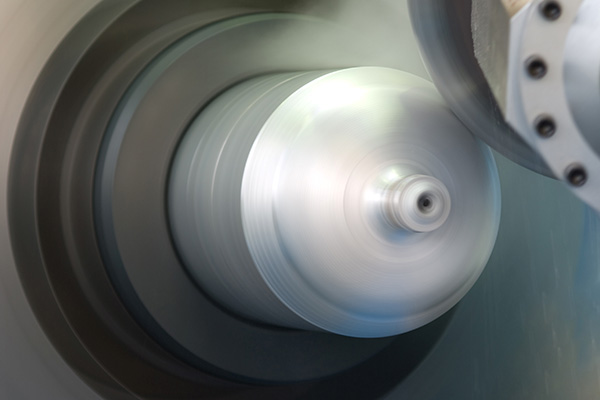Leifeld Metal Spinning is launching an innovative forming machine that meets these requirements and helps to reduce CO2 emissions.
Maximum safety and flexibility in shaping in terms of sophisticated neck geometries and wall thickness gradients for very high operating pressures are the key issues when it comes to the production of aluminum hydrogen tanks. Leifeld Metal Spinning GmbH is launching an innovative forming machine on the market that meets these requirements and helps to reduce CO2 emissions.
Manufacturers of hydrogen-powered vehicles have clear requirements for hydrogen tanks: absolute safety, maximum filling volume and maximum flexibility in the design of the tank shape. All three requirements are met by hydrogen tanks manufactured with the necking-in machine AFC from Leifeld Metal Spinning GmbH.

AFC stands for Aluminium Forming Center. The machine forms the ends of the aluminum cylinders for hydrogen storage using a special necking-in process. As hydrogen tanks underlie high operating pressures in their application, the entire neck area is optimized in its wall thickness profile during the forming process for long-term durability. In addition to the standard necking-in machine, the German machine manufacturer also offers a machine type that combines the necking-in and flow forming technology to form both, the entire pressure vessel body and the necks.
Customers can choose between two equipment options for preheating the material: gas burner or induction system. Once the pipe ends have been heated, the material is necked in. The process is completed by controlled loading and unloading as well as automated programming. “With our necking-in machine LEIFELD AFC, we are setting new standards in the forming technology for hydrogen tanks. Maximum safety, increased flexibility and a contribution to CO2 reduction combined with the famous LEIFELD technology promise – these are the innovations the automotive industry needs,” says Oliver Reimann, CEO of Leifeld Metal Spinning GmbH.
Hydrogen tanks operate under immense pressure. Scratches or other defects on the surface would be catastrophic. To prevent damage to the material, the R&D team, led by Benedikt Nillies, Technical Director at Leifeld, has come up with several solutions. For example, the heating of tube ends in the machine: “Normally, the tube ends are heated by a gas oven or an induction system outside the machine,” says Benedikt Nillies. However, during subsequent loading, the component cools down. “We want to prevent this,” Nillies continues. “With the AFC machine, the tube ends are either heated by an integrated heating device with a gas burner or electrical induction to processing temperature uniformly. We can precisely adjust the temperatures to the desired level. This avoids coarse grain formation and preserves the material’s strength.” Valid forming tests for aluminum tanks confirm the success of this innovation.
To keep the surface intact, Leifeld offers various spinning rollers – from simple necking-in rollers to actively driven forming rollers. The rollers, developed and manufactured by Leifeld, rotate upon contact with the part, preventing surface defects by avoiding material buildup on the roll. The support device was specially designed so that it can absorb the forming forces even with very thin wall thicknesses. The cylinder is held stably in a precise position, ensuring tight tolerances and surface accuracy even at high forming forces and forming speeds. The innovative support system can be used for parts up to 6 meters in length.
There are no limits to the design of aluminum cylinders. Thanks to the flow-forming and necking-in technology, even stepped dimensions can be realized. “Some of today’s hydrogen tanks have to be integrated into existing vehicle architectures with limited installation space. For example, a tank could be stepped in such a way that it takes up as little space as possible and has the maximum filling volume. With this innovation, we aim to contribute to electromobility with hydrogen,” says Benedikt Nillies.
Hydrogen tanks are currently primarily used in cars, trucks and buses. However, Benedikt Nillies also sees the possibility of using hydrogen tanks manufactured on LEIFELD machines to power rail vehicles and aircraft as feasible: ” We are continuously developing the process and have received initial inquiries from other industries. Additionally, we are currently working on automating loading and unloading systems in order to adapt the machine even more efficiently to the customer’s material flow.”
Leifeld Metal Spinning GmbH emphasizes its clear focus on innovation and progress, as well as quality leadership as a solution provider, deeply rooted in the corporate culture. The company has its own application center in Germany and Japan, along with in-house research and development capabilities, driving the continuous development of new technologies. The LEIFELD team will showcase its solutions at the H2 & FC Expo in Tokyo from February 28 to March 01, 2024. This renowned international trade fair provides an optimal platform to present the new necking-in machine LEIFELD AFC to a broad audience and to deepen the exchange with experts. Interested parties are cordially invited to visit the company’s stand and participate in shaping the future of hydrogen technology.
Scott Ellyson, CEO of East West Manufacturing, brings decades of global manufacturing and supply chain leadership to the conversation. In this episode, he shares practical insights on scaling operations, navigating complexity, and building resilient manufacturing networks in an increasingly connected world.